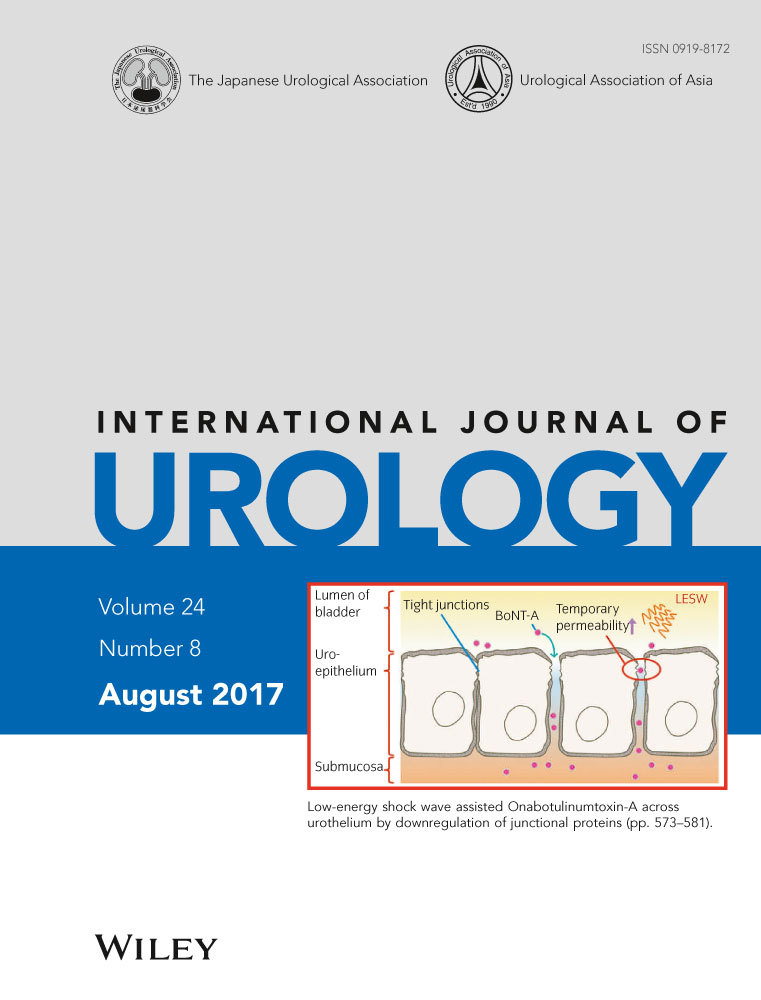Chronic kidney disease as a risk factor for recurrence and progression in patients with primary non-muscle-invasive bladder cancer
Abstract
Objectives
To investigate the relationship between chronic kidney disease and primary non-muscle-invasive bladder cancer.
Methods
Disease outcomes were analyzed in 418 patients treated with transurethral resection for primary non-muscle-invasive bladder cancer, and were correlated to traditional risk factors as well as chronic kidney disease stage according to estimated glomerular filtration rate: ≥60 (G1–2), 45–59 (G3a) or <45 (G3b–5).
Results
The median follow-up time was 40.0 months. There were 287 (68.7%), 98 (23.4%), and 33 (7.9%) patients with G1–2, G3a and G3b–5 chronic kidney disease, respectively. T1 tumor was present in 29.6% of G1–2, 43.9% of G3a and 51.4% of G3b–5 chronic kidney disease (P = 0.004). The proportion of histological grade 3 non-muscle-invasive bladder cancer was higher in G3a and G3b–5 than G1–2 (P < 0.001). Higher chronic kidney disease stage was associated with worse recurrence-free (P < 0.001) and progression-free survival (P = 0.017). In multivariable analysis, G3b–5 was found to be an independent predictor for recurrence (hazard ratio 1.87; P = 0.004) and progression (hazard ratio 2.96; P = 0.019). Chronic kidney disease stage was also strongly associated with the European Association of Urology bladder cancer risk groups (P < 0.001), and with shorter time to recurrence and progression in each group.
Conclusions
Chronic kidney disease predicts the clinical outcome of primary non-muscle-invasive bladder cancer. Adding chronic kidney disease to the conventional risk factors might increase the accuracy of risk stratification.




